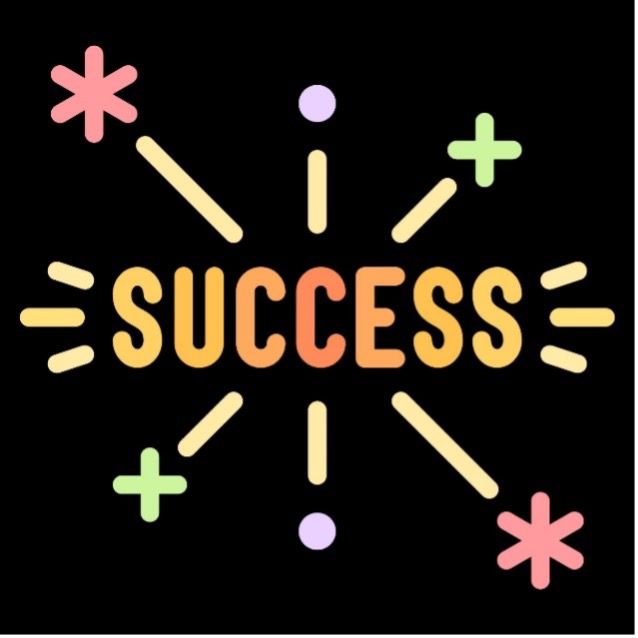
Deciding to enter the tech industry is an exciting decision. There are countless roles and positions to hold, and industries are open to hiring professionals to manage and develop their digital infrastructure. The decision to enter tech may seem shakier when starting to learn to code and attend a software engineering bootcamp.
At this point, you will learn new programming concepts daily, balancing theoretical and practical knowledge with building applications. You must also network to ensure you have a job once you graduate. These tasks can make this time hard to navigate, even for those students who are natural coders. To be successful, you will need to develop habits from the start of your bootcamp to ensure that you can maximize your experience.
Have a Plan for Each Day

Why would you need a plan? Many aspiring software engineers attend a bootcamp because they want structure in how they learn and develop their coding skills. How a bootcamp is structured would seem sufficient for getting the skills needed for a software development job, but attending lectures and completing assignments will not ensure success.
To maximize the benefits of your time at a software engineering bootcamp, you will want to develop a study and learning plan for every day of classes and independent study on the weekends. This could look like going to class, then reviewing a topic from the current day and preparing for the lecture of the coming day. It could include doing a set number of data structure and algorithm questions or adding a feature to a portfolio project.
This plan could include many different things, but having a plan is crucial. Making a plan will allow you to feel in control of your bootcamp experience, even if the material is fast-paced and the assignments seem never-ending. Having a plan can also allow you to anticipate and prevent burnout by scheduling lighter learning days or days away from code entirely.
You may inevitably fall off your study and learning plan, but having the extra structure for yourself will make your experience more successful.
Study and Work with Other Students
Successful software engineers are usually not solo workers. The best designs and quickest solutions come from software engineers working together, not a coding wizard working in isolation. This is true for being successful in a coding bootcamp as well.
Whether your bootcamp organizes you and your cohort into study groups or you take it upon yourself to form a group, find students to learn with. There are many reasons why learning with others is highly beneficial. This article by 360 Learning details group learning benefits such as increased knowledge retention, higher engagement due to group accountability, knowledge diversification from different outlooks, and enhanced communication and collaboration skills. These items are intimately tied to being part of a successful software development team.
A key benefit of learning to code with others is different topics come naturally to diverse learners. Some students may be really good at understanding HTTP communication, while others will best understand how to optimize database calls. Some experiences and backgrounds make some topics easy and others difficult to learn. The more people you have to study with, the more likely someone will be able to quickly understand a topic and share this understanding with the group.
Know Your Instructors, Assistants, and Mentors
Early during the bootcamp, it is crucial to identify all of your instructors, learning assistants, and mentors. Having a more senior developer ask questions is vital for efficient learning, especially for new developers. One of the most challenging things about being new to software engineering is not knowing what you do not know.
By having good relationships with your bootcamp's instructors and mentors, you can better learn how to learn, separate important base concepts from filler topics, and learn to problem-solve like a software engineer.
A software engineer at Uber wrote this blog post describing the importance of having a mentor when first starting to work professionally as a software engineer. One of the points he stresses for mentees is taking an active role in their learning journey.
This may look like keeping track of key achievements and learning outcomes between sessions with your mentor or instructor, reflecting on challenges, and discussing issues you may be having with topics or assignments. Having a mentor who can give you a deeper understanding of the topics you are working through will provide a more well-rounded knowledge of software engineering and expedite your learning process.
Write About Your What You are Learning

Writing about what you are currently learning has been shown in many studies to improve learning outcomes. Writing improves content retention, critical analysis, and literacy in the area of study. By writing about the programming topics you are studying, whether how a function or styling approach works with JavaScript or a design approach taken for organizing data in an app, you are reinforcing what you know and broadening your understanding by having to think critically in your explanation.
This writing will serve another purpose for you by allowing you to show that you understand software engineering topics and you have the soft skills to communicate ideas to others. Having a blog on a website like Medium or adding a new section to your portfolio website will increase your web footprint for potential recruiters or clients who may want to hire you for work following your software engineering bootcamp.
Focus on Fundamentals, not Flashy Frameworks
Two common mistakes early-stage developers make are not learning the fundamentals of a programming language and relying on programming frameworks. Knowing a software language's basic syntax does not mean that you know the language. Full knowledge includes understanding the language's use, how it interfaces with other programming languages, best practices, and common design patterns.
It takes time to develop this understanding as most of the components mentioned above only come when you are faced with an assignment or project problem. A mistake beginner developers make is reaching for frameworks before they understand the language the framework is built on.
Many developers can code in React but do not understand the basic JavaScript that powers the React library. This can be an issue as developers move to legacy code built in Vanilla JavaScript or JQuery. They need to gain knowledge to adapt to different approaches. Another issue will arise when React becomes dated and is replaced by a new framework.
Frameworks aid in building applications by abstracting away technical details, but to be a successful developer, you need to know these details. Focus on the fundamentals and make sure you can solve problems with the base language before you start integrating frameworks.
Do not Waste Time on Unrelated Study Areas

Programming is a powerful tool. When you first start coding, it is tempting to solve all sorts of problems. If you attend a software engineering bootcamp, your time is limited and valuable. A common mistake for early-stage developers is to learn unrelated skills. If you are attending a bootcamp, you are interested in getting hired as a software engineer with a specific skill set. Focus on learning this skill set.
Continued education is crucial for software engineers. You have your whole career to learn about concepts like game development engines, data warehousing and pipelines, and mobile app development. Do not use the time you could spend mastering web development and practical software engineering by learning tangential or unrelated skills.
Joining a Bootcamp Today
This advice should help anyone looking to ensure success from the start of their bootcamp. Suppose you still need to get in a software engineering bootcamp. In that case, you should check out Thinkful's 5-month Software Engineering Bootcamp. This bootcamp is set up for you to succeed as they offer a structured curriculum to help you gain a full-stack understanding and have mentors who can help guide you as you learn all about software engineering!

